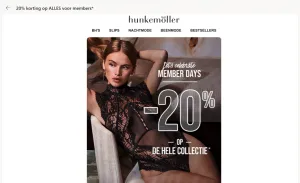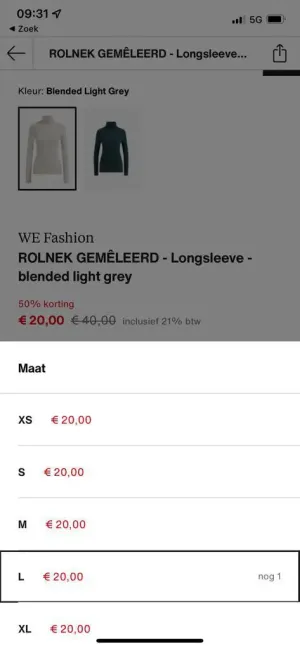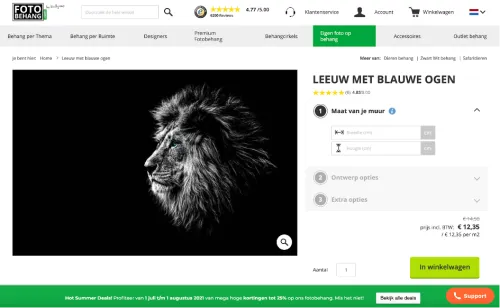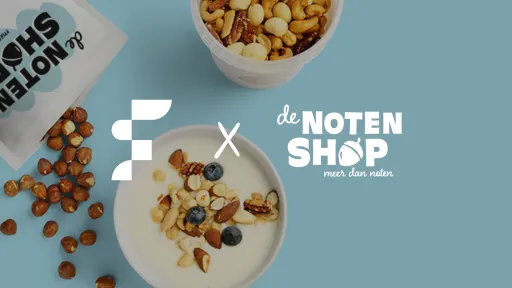The beliefs and behavior of consumers are changing rapidly. To keep up with and influence these changes, it is important that we use our insights into the customer.
Normally, customers have fixed habits that they are reluctant to deviate from. They even tend to reject innovations. Positive changes are often slowly accepted, even if the changes are beneficial to them. Decisions are made by the subconscious brain, so once customers are influenced, we naturally want to continue serving them. It is therefore important that we continue to meet their needs and appeal to their subconscious.
How can we positively influence behavior?
Positively influencing behavior is also known as ‘persuasion’. By means of a ‘nudge’, you introduce certain triggers to gently push customers in the right direction, without prohibiting anything or offering a reward. To apply this in marketing, Robert Cialdini's 6 principles of influence, also known as the ‘principles of persuasion’, are often used.
Robert Cialdini's 6 principles of influence are:
- Reciprocity
- Scarcity
- Authority
- Commitment / consistency
- Consensus / social proof
- Liking
Influencing behavior based on reciprocity
This means that when you receive something, you are more likely to give something back. Think of discounts, a small gift with a purchase, or answering a help request. You'll find that when you offer help, you are more likely to receive help when you need something from someone.
If you want to use reciprocity for your digital marketing strategy, you can do so with different goals. One goal is to generate as many conversions as possible, while another is to build loyalty with your customers.
If maximizing conversions is your goal, you can achieve this by giving your customers a personal discount code on their birthday. HEMA does this by offering free pastries, and H&M gives a 25% discount on one item.

If building loyalty is your goal, you can offer a certain discount to your regular customers. People who are not regular customers do not receive this discount. Hunkemoller does this in the form of ‘Member days’.

Influencing behavior through scarcity
People are quickly afraid of missing out; the ‘fear of missing out’ applies here. Additionally, people like to have something that only a few others have, such as limited editions or products that are on sale and won't return. In stores, you often see the slogan ‘while supplies last’, and when booking a hotel room, you often see on the website how many rooms are still available. This method of influencing can also be used when you have exclusive information at your disposal.
If you want to use scarcity to encourage visitors to your website to make a purchase and give them a nudge in a certain direction, you can do this in various ways. Booking.com uses scarcity by indicating how many rooms are still available.

Online stores, like Zalando, use scarcity by indicating how many items are left for products that are almost sold out.

Influencing behavior with the help of experts
“If an expert says something, it must be true.” That is the principle of authority. People are very willing if someone with authority is the face of your marketing. It is important to ensure that your expertise is known before you want to influence the behavior of potential customers. Toothpaste brands can use authority by having a dentist speak in their advertisement. Because “if they say it, it must be true”. Sensodyne has applied this.

Influencing behavior by being consistent in your product or service
By building trust with people, you can persuade them to a certain behavior. They want to be consistent with a previous action they have taken or something they have said. Therefore, ensure that customers commit to something small, so they are more likely to convert to something big. A small step can be an interaction with the website, such as filling out a size chart or filtering within a website. Signing up for a newsletter can also be seen as a step towards conversion. When someone has signed up, the visitor of your website also gets to know you in a different way. Email marketing is used here as a nudge towards a conversion. The persuasion principle of Consistency works especially well with a target audience of 35 years and older.

Signing up for the Vliegtickets newsletter means sharp offers and travel inspiration in your inbox.
Influencing behavior with social proof
We like to copy the people around us. When we see that other people have also bought your product or service, potential customers are more likely to make a purchase from a company they do not yet know. Nowadays, companies often use influencer marketing for a large reach on social media. Additionally, you increasingly see a pop-up in webshops with “X number of people also bought this product in the past X hours.”
At Fotobehang.nl, social proof is used by showing a green pop-up on the product pages that says: “Good choice! This wallpaper is very popular, good choice! At the moment, people are considering this wallpaper!” Fotobehang.nl has implemented this in collaboration with Follo. The banner is shown after a visitor has entered the page via Spotler Activate, an online personalization tool. Read more about Spotler Activate and what Follo can do for you in terms of personalization.

Liking and empathy to influence behavior
If your customer likes you or recognizes themselves in your brand, they are more likely to buy something from you. And vice versa. Think, for example, of how you address them or use models that fall within the target audience. Find similarities between your company, product, or service and the customer, and they will like you more quickly. If you want to positively influence someone's behavior, you need empathy. Influencing someone's behavior must, of course, be sincere. Someone will like you if you give them compliments, if you want to collaborate with your target audience to achieve a common goal, or when you have common traits.
Liking is related to the principles of influence “authority” and “social proof”. When you use a well-known person in your marketing to exude authority, someone who likes this person will feel a connection with your brand and therefore convert more quickly.
Perfume brands, such as Dior and Valentino, show various celebrities in their marketing expressions to exude liking.

Johnny Depp as the face in the marketing expressions of Dior Sauvage perfume.




